Saudi Arabia’s First Female Director Wants ‘Wadjda’ to Speak for Itself
It's the first movie filmed entirely inside the kingdom, the first directed by a woman, and the first submitted by Saudi Arabia for an Academy Award, but Haifaa al-Mansour wants her film to do its own talking.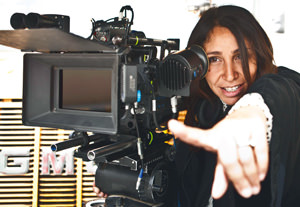
Movie theaters are banned in Saudi Arabia, but unlike many of her classmates, Haifaa al-Mansour watched a lot of films on the small screen in the small town there where she grew up. She didn’t plan on becoming a filmmaker herself, but when she came home after studying literature at the American University in Cairo, she felt invisible and wanted to do something to assert herself. So she made a short film about a serial killer who dressed like a woman, covering his face. Al-Mansour went on to film school in Sydney and became Saudi Arabia’s first female filmmaker. Her new feature, “Wadjda,” is the first movie filmed entirely inside the kingdom, and, after getting a lot of love from critics and audience members at film festivals, including in Tribeca, Toronto and Los Angeles, Saudi Arabia has submitted the movie for an Academy Award — another first.
“Wadjda” tells the story of a fun-loving 10-year-old girl who tries to raise the money to buy a bicycle by entering a Quran contest. Through her title character, Al-Mansour offers a glimpse at the lives of women and girls in Saudi Arabia. Wadjda gets scolded at school for not covering up and for her high topped Converse shoes. She’s told that girls don’t ride bikes when it’s discovered she wants one to beat her friend, a boy, in a race. Wadjda’s mother worries about her husband taking a second wife and depends on an unreliable driver to show up to get to her job. In San Francisco, Al-Mansour talked about feeling invisible as a woman in Saudi Arabia, a bicycle as a nonthreatening symbol of mobility, and directing from inside a van in a segregated country.
Emily Wilson: How did you get interested in movies?
Haifaa Al-Mansour: I grew up in a small town in Saudi and there was a lot of nothing. Absolutely nothing, so I watched a lot of films growing up, and I fell in love with the medium. I never thought I’d be a filmmaker. It never crossed my mind, ever, but after I finished college, I went back to Saudi and started working. The country was very conservative at the time, and women are not promoted enough. I felt so low; you want to assert yourself and you want to move ahead. You feel invisible because of the culture, nothing personal, but that’s how I felt, so I wanted to make a short, just as a hobby to get out of that mode. I made it with the help of my brother and my sister. We sent it to a competition in Abu Dhabi, and it got accepted. That was how I started. When I went there they said we have never seen films coming from Saudi Arabia, so you’re the first female filmmaker. I made films because I wanted to have a voice.
EW: Was that rare to watch movies? Did your friends want them as well?
HA: I grew up when Saudi started to become very conservative with a conservative interpretation of religion, and a lot of the literature was about excluding art from the public space and said that TV was very corrupt and a lot of people started putting TVs out of their home. But my parents are very cool — they’re very middle class, they don’t speak English, and we never traveled to Europe or the U.S., but they never bought into that. We always had access to film. It was frustrating for me because a lot of my classmates would think I was corrupt and evil, and they wanted to save me from that secular environment. Always they preached to me, and they gave me little books about religion. I was frustrated as a kid, but now I’m very grateful for my family, and I’m so excited to see Saudi moving away from those ideologies, and a lot of people enjoy film and music. People are becoming more tolerant, and there is room for art now.
EW: Why did you choose to tell this story about a girl who wants a bicycle?
HA: I wanted to tell a story about where I come from and my hometown and my school. I went to public school all my life. I wanted something to symbolize freedom and freedom of mobility, so the bicycle really fed into that choice, and also it comes with all this cinematic history. I didn’t have any to lean on. When you make a film, you don’t want to exist in a vacuum. There’s “The Bicycle Thief” of course, and other movies, and it had so much weight in cinema. And then it’s a toy, it’s not that intimidating, so it’s good for a country like Saudi, a conservative country reluctant to accept film and women making stories about themselves.
EW: What are you showing about the lives of women through this story?
HA: I wasn’t trying to show how hard life is in Saudi although it is hard, of course. I wasn’t trying to complain about a dark situation as much as show how people can empower themselves and move beyond that situation. That is why it was important for me to build Wadjda as a person who would move ahead –has this determination and love for life to change things no matter how difficult things are around her. And of course I wanted to show how life is in Saudi, but I wasn’t trying to be judgmental as much as open a lens for people and let them feel how it is to be in Saudi. I wasn’t trying to say, “This is bad,” as much as gather situations I faced as a woman in Saudi and put them in the film. And I hope people will see it without me saying anything — just the way the scene is will provoke ideas.EW: Did you have similar experiences to the mom or Wadjda?
HA: Of course when I was in school I was told I have to cover, and my family is not known for covering. I remember the first time I wore an abaya I didn’t know what to do with it, and it was windy and it blew away. And I was running after it and I went home without it and it was a traumatic day [laughs]. And when I started working, I was employed in a town that was away from my parents’ house, and I had to hire a driver. The driver was always sleeping and always late, and I had to knock on the door trying to find him.
EW: What do people react to when they see the movie?
HA: They want to talk about Saudi Arabia and how it is for women. But I’m grateful to see people can appreciate the humor. I come from a very far away place and sometimes you don’t know if the humor will translate or not, and I feel so good when they laugh. And they get the journey in the end. They get moved at the end.
EW: Why was it important to you to film in Saudi Arabia?
HA: Saudi is a rich place, I feel, in culture and nobody knows how the country looks and for me I wanted to make an authentic film about Saudi Arabia, and to do this you have to film in Saudi. It’s very conservative, but there is a little bit of infrastructure for TV, and there is room to make things. I had really brave producers and we had also a good company, Rotana Studios, which is a Saudi company.
EW: What was the biggest challenge?
HA: Everything was a challenge. It was a very stressful six weeks. The only good thing about those six weeks was I lost so much weight! It was very stressful because we were going against the culture. People don’t appreciate films, and they don’t like cameras. Sometimes we could only film half the scenes and we’d have to go back again. The country also is segregated, and I had to be in a van and have a walkie-talkie. Men and women are not expected to be together in public space, so that is difficult. Sometimes access to location was difficult, and sometimes people would get nervous because film is not a very common thing. They didn’t allow us access sometimes after we had already contracted the place, so we always had to change our plans. But there were some nice neighborhoods and people were very happy to see a camera, and it showed me Saudi has changed. We filmed with permission. We submitted the script and we got permission, so it’s nice to see this is changing. It’s still a very conservative place, but there’s a crack.
EW: Was Wadjda based on someone you know?
HA: I based her a lot on one of my nieces. She’s amazing. She’s a hustler, and she’s always trying to earn money. She has so much life and energy, but my brother is conservative and she conformed a lot and to me that was a great loss for a person who could have achieved a lot. This film is for her and for girls like her. Saudi is a very hard place to grow up and there’s a lot of pressure on women to stay at home and conform and not follow a dream if it does not fit for women in this society. I hope it will give them another.
EW: What are you proudest of with this movie?
HA: I was really happy just to get the movie out. I really enjoyed working with the actors too, and I felt like I got close to them. The thing I’m most proud of is I can say I wrote this film on my sofa back in my home. I imagined that film and the film is here, opening in the U.S. and everywhere in the world — it’s surreal [laughs]. It’s a story I imagined in my mind, and now I’m sharing it with the rest of the world. I’m very grateful. It’s amazing.
Your support matters…Independent journalism is under threat and overshadowed by heavily funded mainstream media.
You can help level the playing field. Become a member.
Your tax-deductible contribution keeps us digging beneath the headlines to give you thought-provoking, investigative reporting and analysis that unearths what's really happening- without compromise.
Give today to support our courageous, independent journalists.
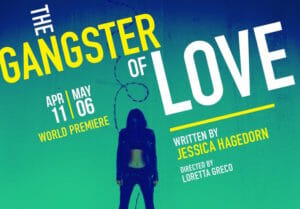
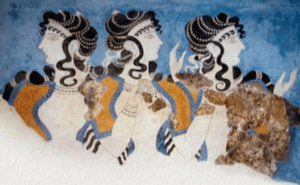
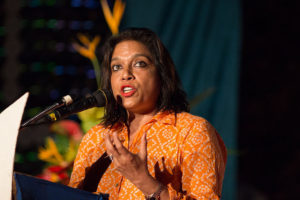
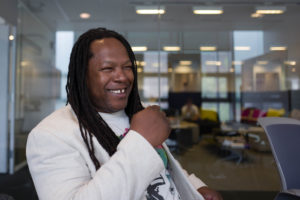
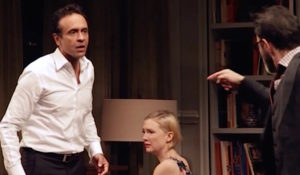
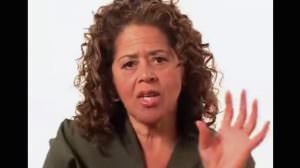
You need to be a supporter to comment.
There are currently no responses to this article.
Be the first to respond.